The Chihuahua is a type of toy dog breed originating in Mexico. These dogs are known for being one of the smallest dog breeds.
They tend to weigh no more than 6 pounds and reach up to 9 inches in height. Chihuahuas come in many colors and patterns, with some dogs being long-haired and others short-haired. Their rounded “apple” heads are a hallmark of this breed, as are their large, expressive eyes.
Similar to other small dogs, Chihuahuas can be feisty, however, these dogs are affectionate companion animals who enjoy spending time with their owners.
Chihuahuas typically cost $1,000 to $2,000.
TABLE OF CONTENTS
Chihuahua Characteristics & Overview

From Adobe Stock
| Common names: | Chihuahua |
| Origin: | Mexico |
| Breed group: | Toy dog |
| Size: | Small |
| Height: | 6–9 inches |
| Weight: | 3–6 pounds |
| Colors: | Black, brown, fawn, cream, red |
| Coat: | Two varieties: smooth and long |
| Life expectancy: | 12–20 years |
| Temperament: | Devoted, alert, aggressive, lively, bold |
| Shedding: | Light to moderate |
| Barking tendency: | Frequent |
| Cost: | $1,000–$2,000 |
Origin & Purpose
The first record of Chihuahuas dates back to the 1800s. Unlike other dog breeds, humans didn’t breed Chihuahuas for work, but for companionship.
The breed’s slightly larger ancestors, Techichis, were alive in the Mayan era and were typically used as sacrifices in religious ceremonies or buried with their owners to bring good luck in the afterlife.
Lifespan
Chihuahuas can live up to 20 years when properly cared for by their owners. As with any breed, this dog’s lifespan is dependent on various factors such as diet, weight, vaccinations, and activity levels.
Chihuahua Appearance
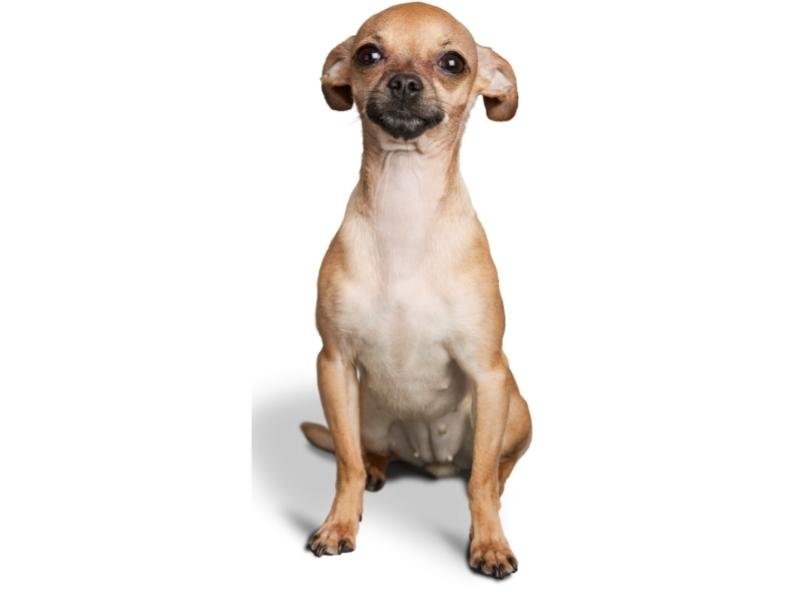
From Adobe Stock
Chihuahuas are well-known for being small in size with big personalities. The breed is easily recognizable by its erect ears, rounded head, and large eyes. While dogs of this breed are relatively the same size, their coat can vary in color and length.
Head Shape
Chihuahuas also possess a variety of unique head shapes. These can generally be categorized into two main types: the “apple head” and the “deer head”. The apple head variety features a shorter snout and a domed skull, resembling the shape of an apple. In contrast, the deer head Chihuahuas have a longer snout and a flatter skull, akin to that of a deer. These differing head shapes contribute significantly to the breed’s overall appearance and are a key aspect in breed standards for show dogs. Each type brings its own charm and appeal, making the Chihuahua a diverse and beloved breed.
Height and Weight
Chihuahuas are considered very small, with a height of up to 9 inches and a weight of 3–6 pounds.
Most Chihuahuas will be ¾ of their final height at six months old, so a six-month-old puppy that is 4.5 inches tall will grow to be a 6-inch-tall adult.
Colors
Chihuahuas come in a range of colors — typically black, white, brown, fawn, cream, chocolate, and red. Coats can also be patterned, with some dogs being a mix of black and tan, fawn and white, or chocolate and tan.
According to their breed standard, any color is accepted, whether solid or patterned. The most common color is solid tan or fawn.
Coat
The Chihuahua has two different types of coat — the short-haired coat and the long-haired coat. Long-haired Chihuahuas have wavy hair and fringes on their tails and heads.
Both the short-haired and long-haired varieties have a double coat to keep the dogs warm and regulate body temperature.
Chihuahuas shed, but only lightly throughout the year and slightly more heavily during the shedding season in spring. Manage shedding with regular brushing and cleaning.
Physical Characteristics
Chihuahuas have a round skull and a short, pointed muzzle. The breed’s ears typically point up but are often held back if the dog becomes scared, stressed, or angry.
When these dogs are first born, their ears are floppy, but the ears gain strength to stand erect as the puppy grows.
The breed’s large eyes allow it to easily express emotions to owners. The dogs’ bodies are off-square, meaning they’re slightly longer in length than height.
Personality and Temperament
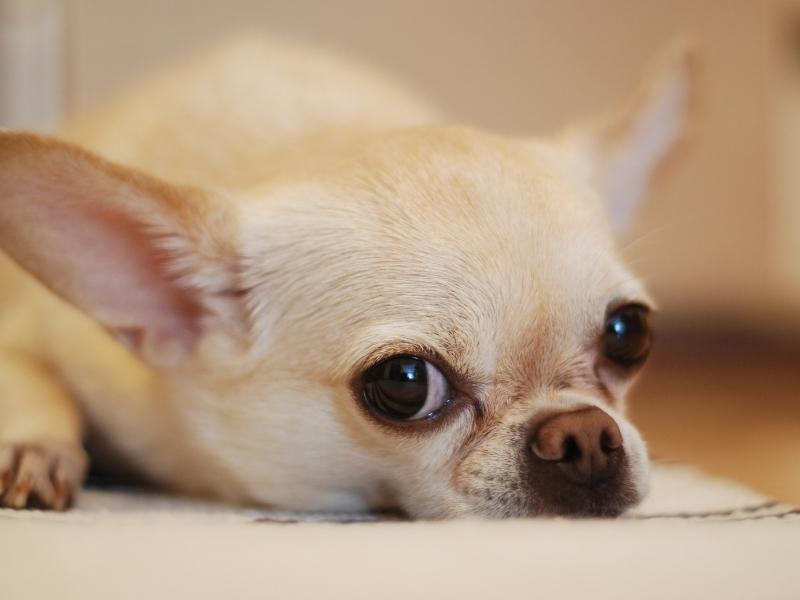
From Adobe Stock
Chihuahuas share many of their personality traits with terriers, according to the AKC temperament guide, making them alert and lively.
The breed is known as a lap dog, but its energetic nature means that it also requires lots of activity to stay occupied. Chihuahuas are loyal and devoted to their owners but can be aggressive to strangers or new people, who they may bark at.
This tendency towards aggression may make this breed unsuitable for a household with lots of visitors, other dogs, or small children.
Barking
Chihuahuas bark frequently throughout the day, typically to display boredom, aggression towards a stranger, or in response to a change in surroundings.
The first step in reducing the barking frequency is to ensure that all of the dog’s needs are being met.
Avoid shouting at the dog or distracting it with a treat while it’s barking. Instead, present a reward to the dog after it stops barking. Positive reinforcement training of this kind typically works well with this breed.
Chihuahua Care
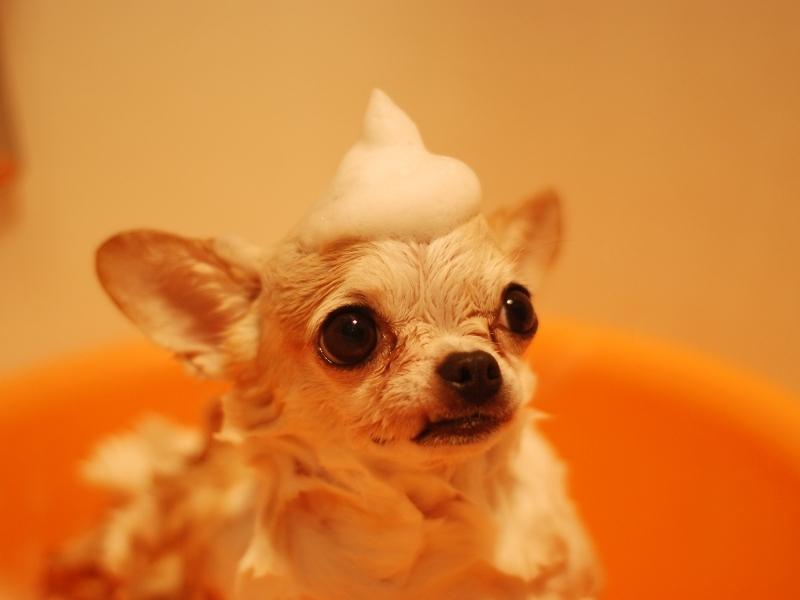
From Adobe Stock
Taking care of a Chihuahua is moderately difficult, as the breed requires training, socialization, and a lot of attention. Despite their small size, their curious nature means the breed requires lots of activity, affection, and play.
Food Needs
Chihuahua puppies should be fed ½ cup of food in 3–6 meals a day to help them grow, with adults requiring ½–1 cup of food split between 2–3 meals daily.
A Chihuahua’s diet should be made up of 40% protein, including chicken, beef, and fish, and the rest of the dog’s food intake should consist of complex carbohydrates, fruit, and vegetables.
Grooming Needs
Chihuahuas require a moderate amount of brushing, with long-haired varieties requiring three brushes a week and short-haired varieties requiring brushing at least once weekly.
Bathe these dogs once every 3 to 4 weeks to keep the coat healthy. Avoid overbathing as this can cause skin issues.
Exercise Needs
Chihuahuas need half an hour of exercise every day. This exercise can be done in one long walk or split into two. The breed’s modest exercise requirements make it suitable for walking in urban areas.
Exercise your dog with daily walks and regular outdoor play, using a range of different toys and games to keep the dog occupied.
Mental Needs
Chihuahuas are very energetic and curious which means that they require a lot of mental stimulation in the form of playing with toys, learning tricks, and problem-solving with puzzle toys.
Common Health Concerns
Chihuahuas are prone to the following health issues associated with the breed:
Luxating Patella
A luxating patella is a dislocating kneecap, which occurs when the kneecap slips out of its groove in the thigh bone. Symptoms of a luxating patella include intermittent hopping and stiffness in the legs. Treat mild cases with physiotherapy and exercises. More severe luxating patella cases require surgery.
Hip Dysplasia
Hip dysplasia is a hip deformity that occurs during puppyhood and results in loose joints. This deformity typically shows up as weakness and pain in a dog’s hind legs.
Physiotherapy is recommended for Chihuahuas with this condition, as is weight loss to avoid putting unnecessary stress on the hip joints. Non-steroidal anti-inflammatory drugs can also be used to treat hip dysplasia. In the event that neither physiotherapy nor drugs can help the issue, surgery may be considered.
Tracheal Collapse
Tracheal collapse occurs when the windpipe, which connects the lungs to the throat, collapses. This condition is more common in older dogs.
The most common symptom of tracheal collapse is a persistent cough, which may worsen in hot weather or after meals.
In some cases, if the collapse impedes a Chihuahua’s breathing, the dog may display blue gums or even faint.
Tracheal collapse can be treated using anti-inflammatory drugs or, in severe cases, surgery.
Training
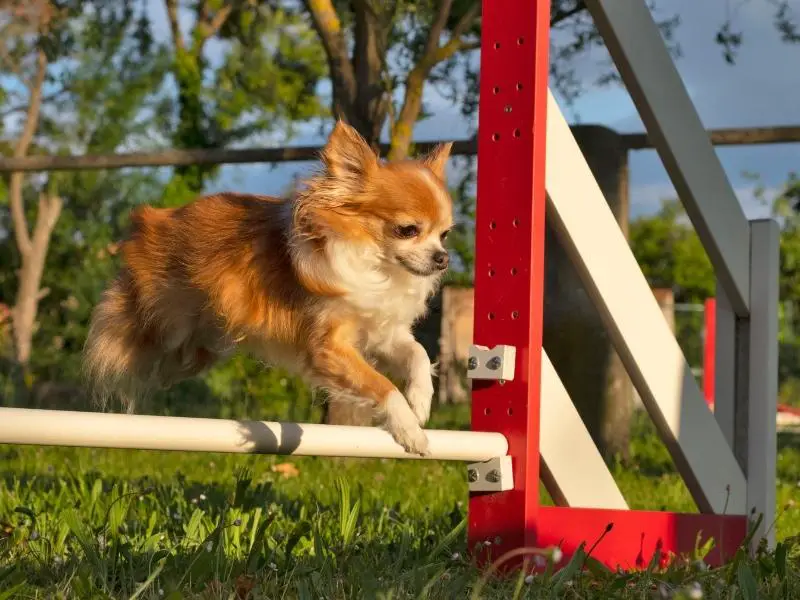
From Adobe Stock
Chihuahuas are prone to stubbornness and aggression, so training can be a challenge. For the best chance at effective results, start training as young as possible.
This breed responds best to training that uses positive reinforcement, so reward good behavior with food or affection.
These dogs can be aggressive to strangers and other dogs, so socialization is vital during the puppy stage to avoid aggressive instincts kicking in around new people.
To make trips to the groomers and introductions to strangers easier, socialize young Chihuahuas with gentle touching and cuddling from various people.
Chihuahua Price
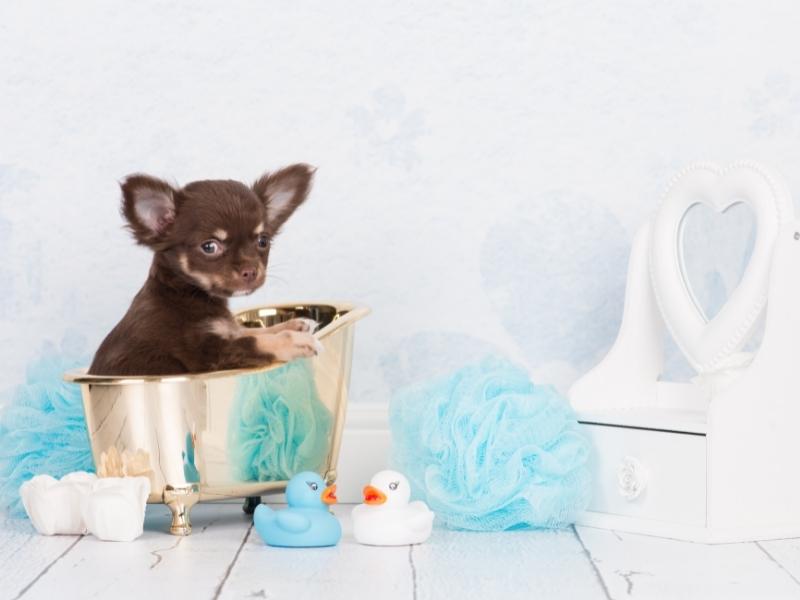
From Adobe Stock
Though they are such a small breed, Chihuahuas are expensive. The price of these dogs vary depending on whether you buy from a breeder or adopt from a rescue center.
How Much Is a Chihuahua?
A Chihuahua typically costs between $1,000 and $2,000. Some puppy mills will sell them for $500 or less, but these breeders should be avoided, as these dogs may be more prone to health issues.
Expect to pay more than average for a Chihuahua that is a member of a championship bloodline, with some bloodlines reaching $4,000.
Adopting is a more affordable way to buy this breed, with shelter adoption fees typically costing between $50 and $250.
How Much Does it Cost to Own a Chihuahua?
While smaller dogs generally cost less per year than larger dogs, Chihuahuas are still expensive. In the first year of owning a Chihuahua puppy, expect to pay up to $1,000 for supplies and vaccinations.
The annual cost of owning these dogs after the first year should drop to about $500 per year, but this amount varies depending on the health needs of the individual dog.
Is a Chihuahua Right for You?
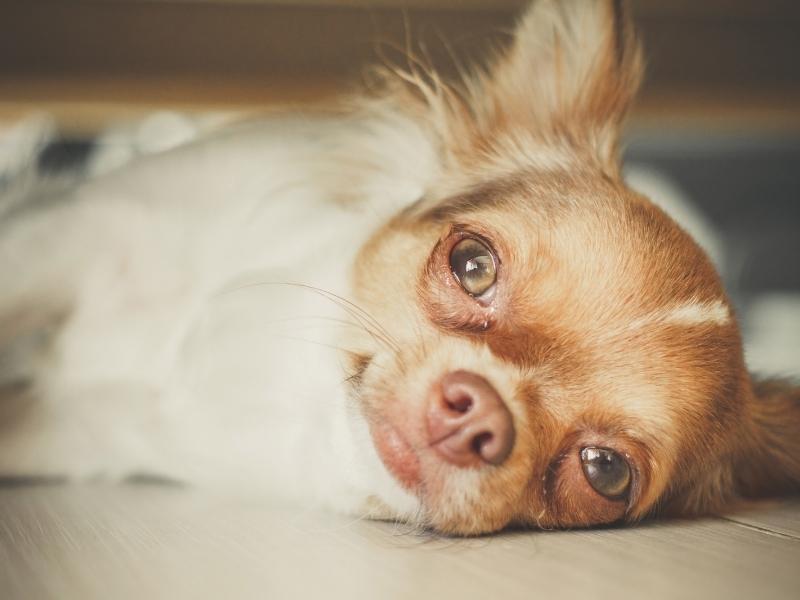
From Adobe Stock
Chihuahuas are small dogs that can be kept in urban areas and small apartments as long as these dogs get enough daily exercise and attention. This breed brings love, loyalty, and mischief to its owner’s household, making this dog the ideal companion for many individuals and families.
However, if a Chihuahua can’t be provided with the high level of attention and stimulation it needs, this breed may not be suitable for all.
Chihuahuas are Suitable for:
Because of their small size, Chihuahuas are suitable for apartment living and smaller spaces. Although they don’t need to be walked much, any potential owner should be prepared to take their dog out for at least one daily walk and play with them regularly.
Chihuahuas rarely exhibit a strong prey drive, so they’re also safe to keep in rural locations amongst wildlife. They prefer to be in a single-dog household, and they’re happy to develop a close bond with just one owner which is ideal for people who live alone.
Chihuahuas are NOT Suitable for:
Chihuahuas are prone to aggression, meaning they may not be suitable for families with very young children. Any young children interacting with small dogs should be taught how to gently handle dogs without causing injury or provoking aggression.
These dogs are extremely loyal to and protective of their owners and, while this creates a great bond between you and your Chihuahua, it can make the dogs difficult to socialize. Chihuahuas work well in environments with few strangers, where the dogs can enjoy spending quality time with their owners.
This breed is best suited to a house with no other dogs because it can become territorial and possessive.
Chihuahua Mixed Breeds
Looking for the traits of a Chihuahua without the health and ethical concerns associated with purebreds? Check out these other hybrid dog breeds:

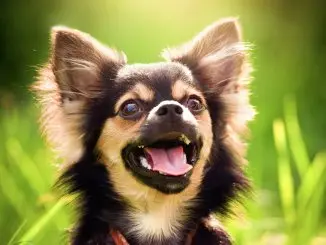
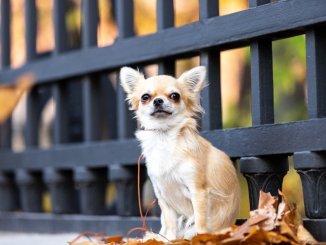
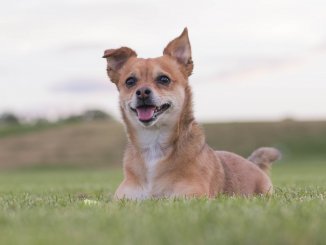
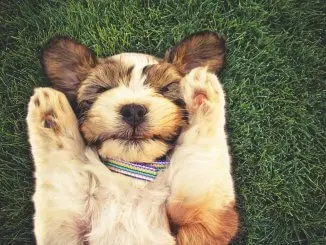
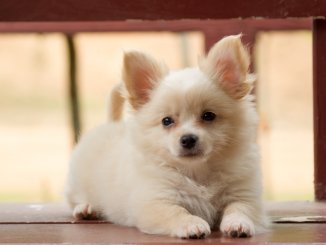

Be the first to comment